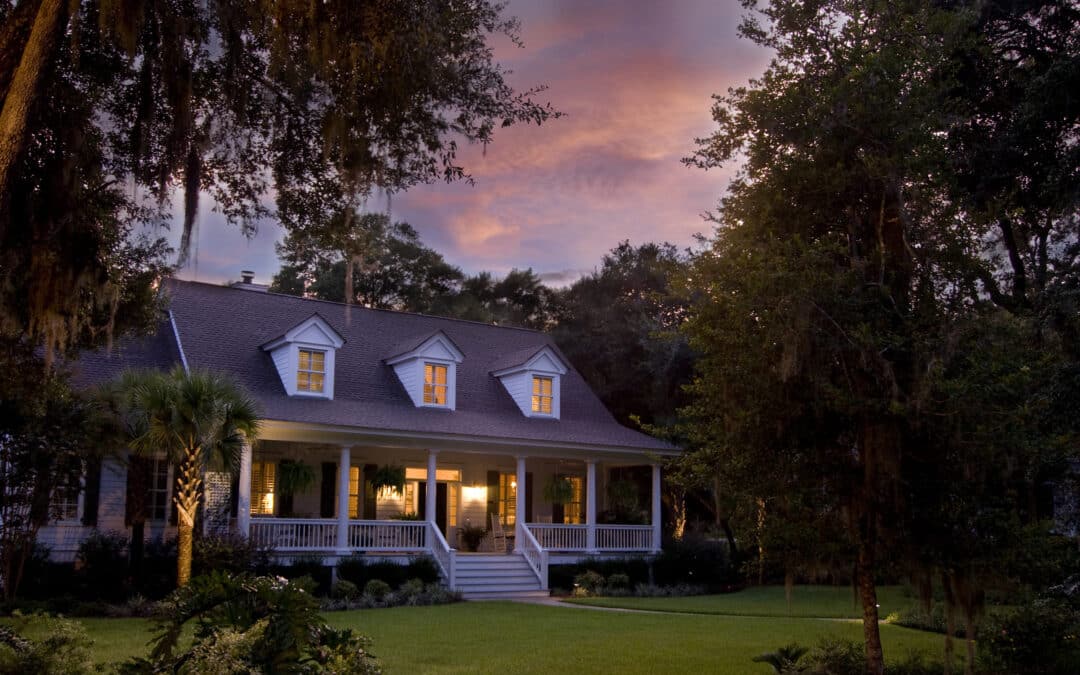Homeowners insurance premiums can sometimes feel like a puzzling part of homeownership. While it’s natural to hope your premium stays consistent year after year, that’s rarely the reality. Many factors can lead to unexpected increases, leaving you wondering why your costs have changed. Gaining insight into these reasons can help you prepare and make informed decisions to manage potential hikes. It’s important to understand why your insurance premiums might go up over time and learn how to address these changes effectively.
Factors that Influence Homeowners Insurance Premiums Over Time
Insurance is a dynamic industry that constantly adapts to market trends, natural disasters, inflation, and the claims history of policyholders. For instance, a homeowner who has lived in their house for 15 years may notice their premiums have crept up. That homeowner may have avoided any major claims, yet their costs continue to rise year after year. This common scenario reflects the range of elements that impact homeowners insurance premiums.
Some reasons why premiums may increase:
- Home values and construction costs fluctuate.
- Claims increase following natural disasters.
- Insurance companies adjust to inflation and rising costs.
The Impact of Market Trends on Homeowners Insurance
Homeowners insurance premiums are closely tied to the housing market. As home prices rise, insurance premiums may follow suit, reflecting the increased cost to rebuild a home. In regions where the real estate market is hot, this can result in significant premium hikes. But even in slower markets, premiums might increase as insurers react to changing economic conditions.
According to the Insurance Information Institute, the average cost of homeowners insurance in the United States is around $1,249 annually, but this number varies depending on many factors, including market trends. This leads homeowners to ask what specific elements insurers look at to adjust premiums.
- Higher property values mean higher replacement costs.
- Market booms may drive up labor and material costs.
- Insurers factor in local market conditions when pricing premiums.
Natural Disasters and Homeowners Insurance Rates
One of the most significant reasons homeowners insurance premiums increase is natural disasters. Hurricanes, floods, wildfires, and other catastrophic events lead to spikes in claims. Even if a homeowner hasn’t filed a claim, living in a disaster-prone area can cause premiums to rise. This reflects the increased risk that insurers bear in these regions.
In recent years, natural disasters have become more frequent and severe. The National Oceanic and Atmospheric Administration (NOAA) reported that the U.S. experienced 22 separate billion-dollar weather and climate disasters in 2020 alone. Insurers adjust premiums based on these risks, especially in areas prone to extreme weather.
- Increased frequency of hurricanes, floods, and wildfires raises insurance risks.
- Insurers adjust premiums based on weather patterns and climate data.
- Living in a high-risk area can significantly impact annual premiums.
How Inflation Affects Homeowners Insurance Premiums
Inflation is another key factor that causes homeowners insurance premiums to rise. As the cost of goods and services increases, so does the cost of rebuilding a home after damage. Insurance companies adjust their rates to account for the higher cost of building materials, labor, and other expenses.
The Consumer Price Index (CPI), which tracks the average change in prices over time, showed that inflation hit a 13-year high in 2021, driving up costs across industries, including construction. This inflationary pressure directly impacts homeowners insurance premiums.
- Rising construction costs increase the price to repair or rebuild a home.
- Inflation impacts labor costs, materials, and equipment prices.
- Insurers adjust premiums to cover the increased costs of claims.
Aging Homes and Homeowners Insurance Premiums
As homes age, they can become more expensive to insure. Older homes may require more maintenance, and outdated systems, like electrical wiring or plumbing, increase the risk of damage. Insurers often raise premiums to account for the added risk associated with aging homes.
A homeowner with a house that is 30 years old may find that their premiums are much higher than when they first purchased the home. The condition of the home and any needed repairs can also impact the premium, especially if major systems have not been updated.
- Older homes often have outdated systems that pose higher risks.
- Homes with deferred maintenance may see significant premium increases.
- Upgrading systems like plumbing and wiring can help mitigate rising costs.
Claims History and Its Effect on Homeowners Insurance
One aspect of homeowners insurance that people often overlook is how their claims history affects premiums. If a homeowner has filed several claims in the past, insurers may view them as higher risk, leading to increased premiums. This is especially true if the claims are related to recurring issues like flooding or storm damage.
Even a single claim can lead to a noticeable premium increase, particularly if it was for a large amount. Homeowners with a history of frequent claims should be aware that they are likely to see their premiums rise over time.
- Multiple claims raise a homeowner’s risk profile.
- Large or recurring claims can significantly increase premiums.
- Insurers may apply higher rates for homes in areas with frequent claims.
Changes in Coverage That May Increase Premiums
Sometimes, a premium increase is due to changes in the homeowner’s coverage. Expanding a policy to include additional protections, like flood insurance or higher coverage limits, will naturally lead to a higher premium. While this increase can provide better financial security, it also affects overall costs.
Additionally, homeowners who update their home with high-value items, such as a pool or a home addition, will likely see their premiums rise to cover the new risks. These coverage adjustments are essential for protecting valuable assets but do come with a cost.
- Adding flood insurance or other riders increases premiums.
- Higher coverage limits for valuables like jewelry or electronics add to costs.
- Major home renovations or additions require updated insurance, leading to higher premiums.
Key Takeaways on Why Homeowners Insurance Premiums Increase
Homeowners insurance premiums are influenced by various factors that can change over time. Whether it’s natural disasters, inflation, aging homes, or claims history, premiums often increase for reasons beyond a homeowner’s control. Understanding these elements can help homeowners make informed decisions about their policies and potentially reduce their costs.
Why Homeowners Insurance Premiums Increase Over Time:
- Natural disasters and claims frequency drive up costs.
- Inflation and market trends affect the price of repairs and replacement.
- Older homes and changes in coverage require higher premiums to cover added risks.
Frequently Asked Questions About Rising Homeowners Insurance Premiums
1. How can I lower my homeowners insurance premiums if they increase?
You can lower premiums by increasing your deductible, bundling policies, improving home security, and keeping your home well-maintained.
2. Do all insurance companies raise premiums after natural disasters?
Most companies adjust premiums based on risk factors in disaster-prone areas, even if you haven’t filed a claim yourself.
3. How often should I review my homeowners insurance policy?
It’s a good idea to review your policy annually or after any major changes to your home or local market conditions.
4. Can I avoid premium increases by not filing claims?
Avoiding claims can help, but external factors like inflation and disaster risk still influence premium adjustments.
5. Is it worth switching insurance companies to get a lower premium?
If your premium increases significantly, it’s worth comparing rates from other insurers, but make sure you understand any changes in coverage before switching.
- About the Author
- Latest Posts
With over 80 years of combined experience, Southern Ambit Insurance stands as an authority in simplifying the complex world of insurance. Our team is committed to providing exceptional customer service, conducting thorough risk assessments, and crafting tailored policies that offer our clients the best protection and peace of mind.







